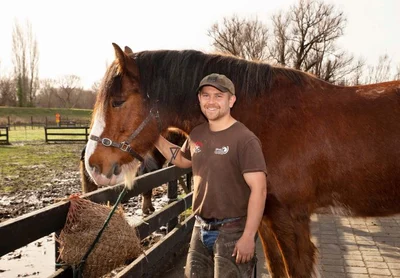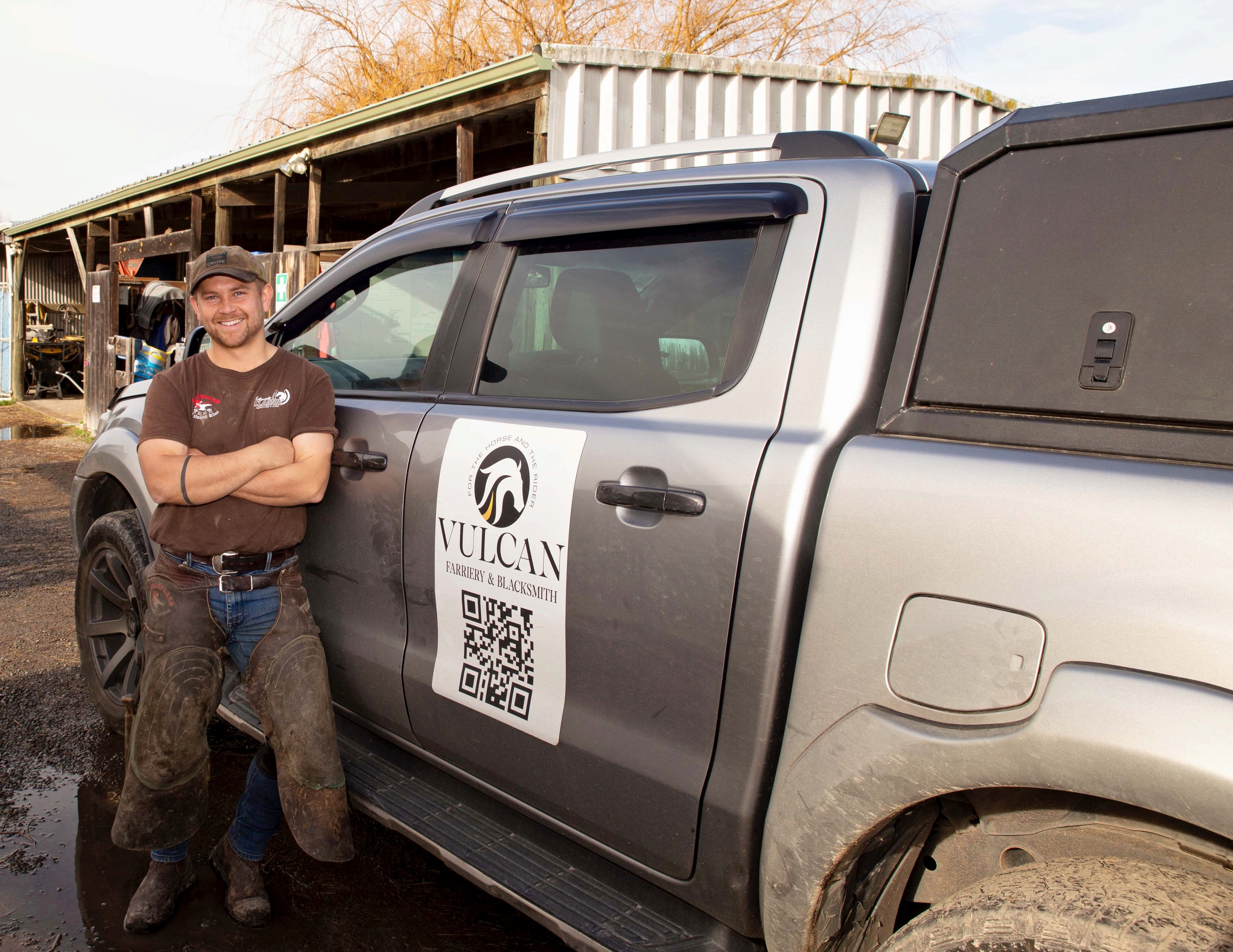If the shoe fits

Rhys Smith made his dream a reality last year when he traded his suit for a set of chaps and a pair of cowboy boots when left his corporate job to study farriery at Heartland Horseshoeing in the American Midwest.
"I had a corporate job, but it was never something I really wanted to do. It was just a convenience thing. It paid well, so I was happy enough to do it."
When the COVID-19 pandemic hit, Smith re-evaluated his career and realised his office job was not fulfilling.
"After Covid , I thought 'What am I actually passionate about?', and I thought, well, horses.
“I've been around horses my whole life, and I've always been happy around them," he said.
Smith considered pursuing a career in horse dentistry or schooling before ultimately choosing farriery.
He initially put his dream on hold for four years due to the lack of clear career paths in the farrier industry in New Zealand, where many farriers were not taking on new recruits.
“It’s hard for farriers to take on apprentices, because there is no funding for them.
“They have to outlay a lot of cost, and there’s the risk that people won’t be physically fit enough or want to keep pursuing it.”
Smith returned to the corporate world but found dissatisfaction with office work.
After speaking to his farrier, he learned that his best options were to receive training in the U.K. or America.
In March of last year, he decided to board a plane for America, where he enrolled in a horseshoeing school in Lamar, Missouri. Training also involved travel to Kansas and Oklahoma.
The town of Lamar, Missouri, was described by Smith as a classic Mid-West town full of cowboy hats and boots, with only Walmart and a rodeo arena as attractions.
The school was located on a 30-acre property with a Yellowstone-style bunkhouse, a training barn with forges, and a classroom.
The remote location had no cell phone service or televisions, providing a unique learning environment.
The school's graduation rate was around 35 per cent, with approximately twenty students who were repeatedly warned that the course was not for the faint-hearted.
"The first thing they said to us was 'We are going to set unrealistic expectations of you, and we are going to expect you to hit every one of them'."
The school's owner, Chris Gregory, comes from a military background, so Smith said the school was regimented with a "you get out what you put in" ethos.
"There was no sympathy around there. You just worked hard. I liked that mentality; it worked for me."
Gregory is world-renowned for his farrier skills, and being trained at Heartland Horseshoeing School is a notable achievement for anyone who finishes the gruelling course.
"It's not so recognised over here, but if you are in the horse industry in the States, and you say you are from that school, it carries some weight; you are known to be one of the better ones –especially if you can say Chris trained you."
After eight months of hard-core studying at the school, Smith returned home to begin his business, Vulcan Farriery and Blacksmith.
Smith says his background in horses has given him an advantage.
"Most of the time, horses can't tell you what's wrong, but if they are playing up, generally there is a reason: they're sore.
"Some people just believe the horse is being naughty, but that can be because they don't understand the horse; they are just there to put the shoe on and leave."
With farriery being an unregulated industry, Smith said there are some unqualified and unskilled farriers working that can cause permanent damage to horses.

"There are definitely some guys out there that are just in it for the money and not too stressed about what they are doing," Smith said.
Smith said most owners don't understand the long-term benefits of having a good farrier.
"It's easy to say a horse can compete for ten years, and then it will break down.
"But if you look at the Olympics, for example, a lot of horses are 20-25 years old, and that's because of the standard of work."
Smith said he hopes to bring the highest standard of work to his business with the training he has invested in.
"I'm always learning, there's a hell of a lot to learn, and every horse is different.
"When it comes to the attitude towards the horse and the industry, though, I'd like to think I'm changing the game a bit."
By Claire Inkson
